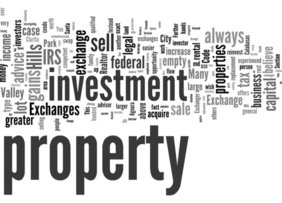Investing in real estate is one of the best-known ways to increase your earnings and grow your net worth. What many people don’t know about investment properties is that once you own a property, it’s possible to reinvest the capital gains tax on a newproperty when you sell rather than having to pay that tax upfront. This is where a 1031 exchange comes into the picture.
1031 exchanges are not just for the highest earning real estate investors, but rather anyone who has an investment property to sell and wants to buy a new one can potentially benefit from the advantages of a 1031 transaction. Whether you’re considering using a 1031 exchange in the near future or are just curious about your options down the line, we’re going to break down what a 1031 exchange is, its benefits, and when to use it.
Quick note: consider the content of this article to be simply for informational purposes from the perspective of real estate — if you’re serious about using a 1031 exchange yourself, it’s probably best to consult with a financial planner and/or tax accountant.
What’s a 1031 exchange?
A 1031 exchange, also known as a like-kind exchange, gets its name from section 1031 of the IRS tax code. Simply stated, a 1031 exchange is a way to defer taxes on the sale of an investment property by reinvesting the proceeds into a new “like-kind” property. The term like-kind is loosely defined by the IRS as being of the same nature even if they are different in quality. What this means in real estate is that you would be able to “exchange” residential property for commercial property, as an example, but you wouldn’t be able to exchange a property for stocks since they are not like-kind.
The way that a 1031 exchange works in practice is fairly straightforward; let’s walk through an example. For instance, let’s say you own a $500,000 property that you’re renting out, but it’s not making you much money. You decide to sell it and want to invest in another property that might be more fruitful. Rather than selling the $500k property and then paying taxes on your capital gains then only having a portion of money leftover to spend on the new property, you can defer the taxes and invest the entire amount into the new property that’s between $500,000 and $1,000,000.
The replacement property needs to be of equal or greater market value of the relinquished property but cannot exceed more than 200% of the initial property that you are selling. Also, there is a 45-day window that you need to identify the new property by after the sale of the first property, and the exchange period can’t last more than 180 days so keep in mind that the purchase of the new property will need to happen swiftly.
An important takeaway from its definition is that a 1031 exchange is not a way to avoid paying taxes altogether, rather it’s a way to deferpaying taxes. However, there is no limit on the number of times you use 1031 exchanges so, theoretically, you can indefinitely defer the taxes if you never sell off a property completely and cash out without using a 1031 transaction for a like-kind property. In that sense, 1031 exchanges are a great way to build legacy wealth.
What are the benefits of 1031 exchanges for investment properties?
One obvious benefit to using a 1031 exchange is for the tax advantages — if you’re deferring taxes on capital gains, it can actually end up being pretty significant especially if your property has appreciated in value. The major benefit to deferring taxes is not to be mistaken as shortsighted because you’re not simply deferring to pay later, but instead you’re able to reinvestthe money you would have paid in taxes into a new property.
This deferment gives you increased cash flow to apply to your new investment providing you with some extra leverage for the new acquisition. Another benefit is that you can exchange a high maintenance/low earning property with a lower maintenance/higher earning property without the tax burden by using a 1031 transaction. If you’re thinking about long term strategies, using multiple 1031 exchanges are a way to build wealth and reinvest in future earnings.
When should you do a 1031 exchange?
You might be wondering if you’re a good candidate for a 1031 exchange. Whether you consider yourself a real estate investor or are aspiring to be one, there are a few signs to look for that it’s a good time to use a 1031 exchange.
For one, if you have investment properties and want to diversify your assets, a 1031 could be a way to do so. For example, if you own three condos that you’re renting out in the same neighborhood, you may want to exchange one of those for a like-kind property somewhere else which would give you a more diverse set of properties.
Another scenario to consider is if you own a large piece of investment real estate and want to divide it into several individual assets. For instance, if you own a large house that rents out for vacations, but you realize it might be more profitable to rent out several smaller units on a lease basis, a 1031 exchange is a potential solution for this situation.
Due to the complex nature of 1031 transactions, if you’re at all interested in how a 1031 exchange could benefit you, talk to your realtor and a tax professional about your personal situation and see what’s right for you. Everyone’s circumstances are unique and it’s important to weigh your real estate options.
As always, if you have questions about 1031 exchanges specifically or are simply looking to buy or sell property in the greater San Diego area, contact Realtor Nick Rogers today.

